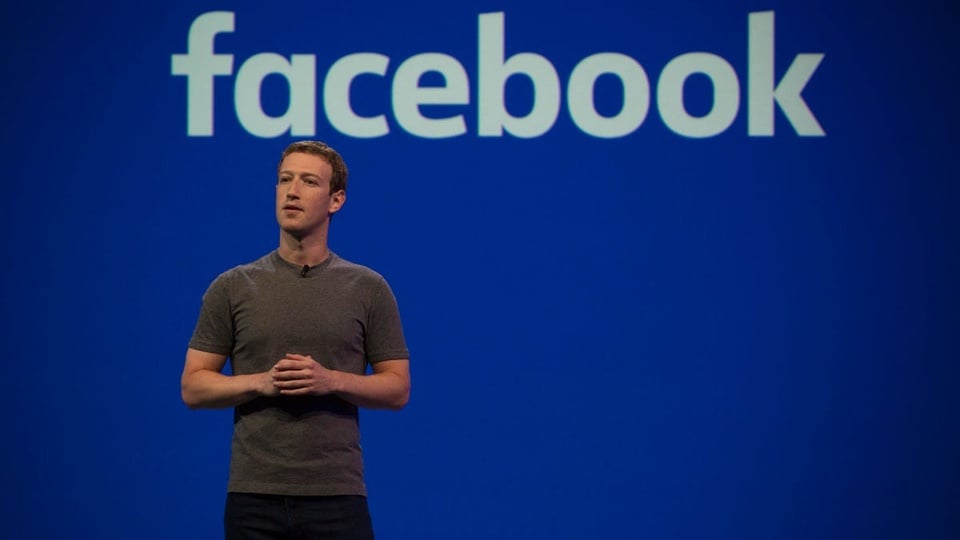 |
Although that bold idea never materialized, Meta is still looking for new approaches to refresh the Facebook user experience. Photo: Cnet . |
During the first hearing of the Federal Trade Commission’s (FTC) antitrust case against Meta, an internal detail came to light: a “crazy idea” that Zuckerberg proposed to Meta in 2022.
Specifically, in the emails, the Meta CEO expressed concern that Facebook’s relevance was “decreasing rapidly.” He suggested wiping users’ entire friend lists and making them “start over,” perhaps even once a year.
The content of a 2022 email sent by Zuckerberg to Facebook's top executives was released in court. In it, he wrote: "Option 1. Invest heavily in the friending model. One idea that might be crazy is to try to wipe out the entire friend graph of users and let them start over." The "graph" here refers to the friend-connection system that is the core foundation of the Facebook experience.
According to Alex Heath of The Verge, who was present at the trial, Zuckerberg proposed a gradual rollout of the idea, such as testing it in a small country first. His reasoning was that if he acted too aggressively, users could leave Facebook en masse.
“Even if Instagram and WhatsApp were doing well, I don’t see any way our company could succeed if Facebook were to fail,” Zuckerberg wrote in the email. “So we have to get this right.”
Responding to the idea, Facebook's Tom Alison was cautious. "I'm not sure your number one option (enhancing the friend model) is viable given how important friends are to Instagram," Alison said.
Zuckerberg responded that he didn’t understand Alison’s concerns, and asked another question. “Do you have an estimate of how much effort it would take to convert all user profiles to a follow model?” the CEO wrote.
When confronted with the email by FTC lawyers in court, Zuckerberg confirmed that the radical plan was never implemented. “To my knowledge, we never did that,” he clarified.
In his testimony, Zuckerberg also acknowledged that Facebook today is very different from when he founded the social network more than 20 years ago. Connecting with friends is no longer the main goal. "The friend-making aspect has been significantly reduced," he admitted. According to him, the current news feed has become a space for exploration and entertainment rather than a place for intimate communication between friends.
In federal court in Washington, DC, Zuckerberg also answered questions from the FTC about the acquisitions that shaped the Meta empire today, namely Instagram (in 2012, for $1 billion ) and WhatsApp (in 2014, for $19 billion ).
The US government has accused Meta of violating competition laws. The company made these two deals to eliminate potential competitors, maintain its monopoly position, and apply a strategy of “take or destroy.” An internal email from 2008, presented by the FTC in court, quotes Zuckerberg as saying: “It’s better to buy than compete.”
In his opening statement, FTC attorney Daniel Matheson argued: “Meta has for many years reaped enormous economic profits, far beyond what could be expected in a healthy competitive environment.” Matheson emphasized that it was this strategy of “acquiring rather than competing” that helped Meta maintain its monopoly position, especially in the area of content sharing applications between friends and family, which is the core area of Facebook and Instagram.
However, Meta's legal representative, attorney Mark Hansen, strongly denied this allegation, saying that the FTC's lawsuit is "a bunch of theoretical confusion that goes against the facts and the law." According to Mr. Hansen, the two acquisitions of Instagram and WhatsApp are completely legal. Meta is under fierce competitive pressure from rivals such as TikTok and YouTube.
The trial is expected to last up to eight weeks, according to Business Insider . Judge James Boasberg will make the final decision without a jury in the case. If the FTC wins, the consequences could be far-reaching. Meta would be forced to split WhatsApp and Instagram.
Source: https://znews.vn/y-tuong-dien-ro-cua-mark-zuckerberg-post1546657.html


![[Photo] Prime Minister Pham Minh Chinh starts construction of vital highway through Thai Binh and Nam Dinh](https://vphoto.vietnam.vn/thumb/1200x675/vietnam/resource/IMAGE/2025/5/12/52d98584ccea4c8dbf7c7f7484433af5)
![[Photo] Prime Minister Pham Minh Chinh works with the Standing Committee of Thai Binh Provincial Party Committee](https://vphoto.vietnam.vn/thumb/1200x675/vietnam/resource/IMAGE/2025/5/12/f514ab990c544e05a446f77bba59c7d1)


![[Photo] Prime Minister Pham Minh Chinh receives Swedish Minister of International Development Cooperation and Foreign Trade](https://vphoto.vietnam.vn/thumb/1200x675/vietnam/resource/IMAGE/2025/5/12/ae50d0bb57584fd1bbe1cd77d9ad6d97)






















































































Comment (0)